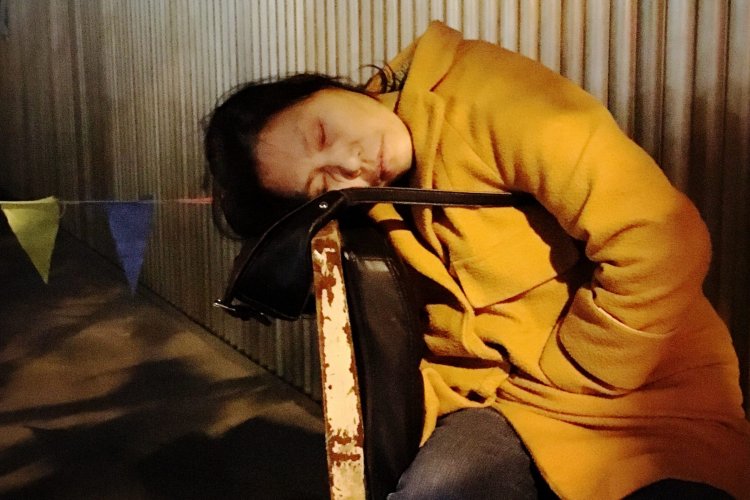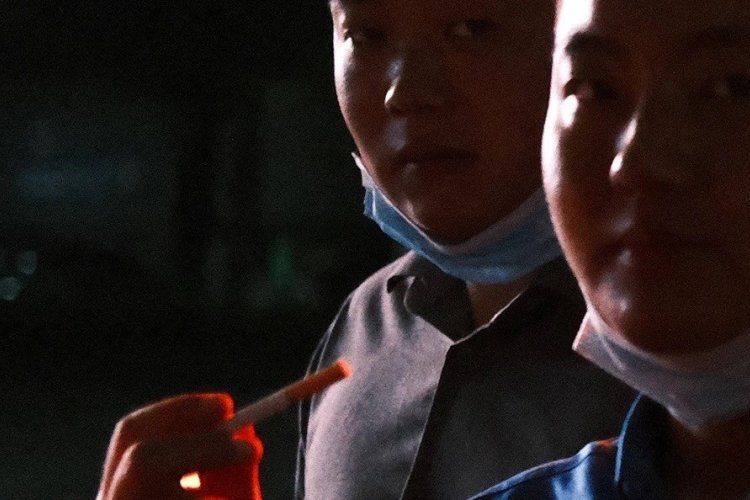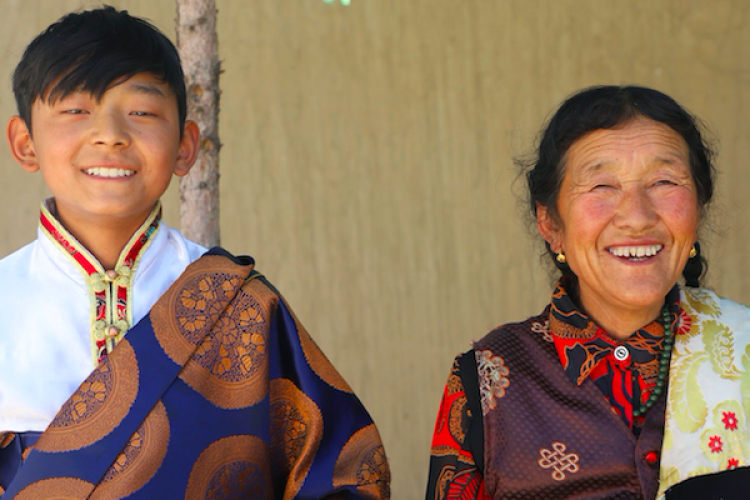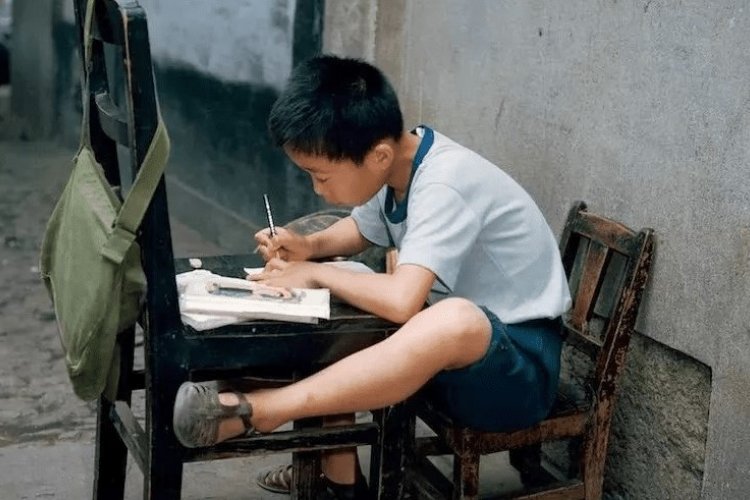Beijing Lights: "Life Is Completely Meaningless to Me"
This post is part of an ongoing series by the Spittoon Collective that aims to share some of the voices that make up Beijing’s 21.7 million humans. They ask: Who are these people we pass in the street every day? Who lives behind those endless walls of apartment windows? These interviews take a small, but meaningful look.
Note from the author: I met Wu when he was walking out of a small grocery store, his whole body leaning on his walking stick, barely able to move his legs. The grocer said she sees the old man only once every month or two. Sometimes, when it’s been too long, people start to wonder if he might have passed away without anyone knowing.
Male, 86 years old, a retired veteran from Sichuan
I’ve been in Beijing for nearly 40 years, and I very much regret it.
My family was pretty rich when I was young, we had a big house with over 30 rooms. But misfortune didn’t spare me – my mother died when I was only a few years old, leaving me to be raised by my grandmother and my uncle’s wife.
My father served as a military officer for the Kuomintang. When I was about 12 years old, he was taken away to prison, and he died there. I have two elder brothers, and they both fled to Taiwan right after my father passed. They couldn’t come back until decades later after China opened up cross-strait travel.
I joined the army after I turned 15, and for a few years, I served as one of Deng Xiaoping’s personal guards. He has a sharp mind, but he’s very short. When he stood together with other officials, he only reached their shoulders. During the time I served Deng, I got to see many of the top state officials of the time, like Liu Bocheng and Fu Zuoyi.
I fought in several battles during my service in the army, including the historical Huaihai Campaign, where the Communist Party battled against the Kuomintang.
At one point, the two armies were separated by only about 50 to 70 meters. In the Kuomintang ranks, I instantly recognized my eldest brother among the soldiers. He wore an officer’s uniform and was in charge of commanding their troops. He recognized me too, his little brother from all those years ago, grown-up and serving in the army of the opposing side. We didn’t get the chance to say a single word to each other despite being only a few meters apart, and after so many years. It was simply not allowed.
I was dismissed from the army at 21. Because I only had four years of education in primary school, I didn’t get a job placement as a veteran. I was sent back to the countryside.
Think about it, my family background included landlords and military officers – two hats you don’t want to wear. Because of these two hats, my life was more difficult than usual. I was sent down for farming every day. Worse, most of the time we were working in the rice paddies, with water rising up to our knees. During the planting season, it was common to soak in the water for 20 to 30 days. My knees were badly damaged from that kind of work. After I got a little older, my legs stopped working right, and now I can hardly walk.
I had a wife back in Sichuan. She was a teacher for a local primary school. When I was 49, my eldest brother returned to the mainland to work in the bureau of commerce. He suggested that I come to Beijing where he could arrange some work for me.
I thought moving to Beijing would be pretty good, and I divorced my wife to join my brother. He tapped his network to get me work in the bureau of commerce. But it wasn’t like I got a good position though. I was doing a string of odd jobs like wrapping packages and some other small tasks.
I got remarried in Beijing. My second wife was a widow. Her husband drowned in Beijing’s City River. He had gone out with their three children. When they were walking by the river, the elder daughter somehow fell in. She was only eight years old and couldn’t swim. He jumped into the river to save his daughter, but he couldn’t get out himself.
My wife and I didn’t have our own children after getting married. All of my kids are stepchildren. We never got too close to each other. There’s always some sort of distance. We didn’t have too much to say to each other either.
I worked for the bureau of commerce for ten years until I retired in my sixties. I wasn’t officially employed, so I only have a monthly retirement pension of about a thousand kuai. Besides that, my son gives me 500 per month, and my second daughter gives me a thousand or two sometimes. Altogether it’s just about enough.
My wife passed away last year. Now that she’s gone, the daughters rarely visit me. My son lives in the 14th compound just one block away. He visits me once a month. Ah, but what’s to complain about, not like there’s a big reason to visit.
My health started deteriorating last year. I often feel dizzy and my eyesight’s getting worse. I live on the third floor, so my knee problem makes it very difficult for me to leave anywhere. So I only go out about once a month to buy some necessities.
What’s my daily life like? Well, I get up between seven and eight, wash my face and rinse my mouth, then I cook myself something to eat. After eating, I sit down to listen to the radio. I’ll take a long nap when I feel like it, and then I cook myself some noodles around three o’clock. Old folks don’t eat solid foods. I usually sit and watch TV the rest of the day, until I feel sleepy again.
I like to listen to things about wars on the radio. They really take me back to my youth. But the radio doesn’t have much, and it’s all fake news on the TV.
What life is all about? If you ask me it’s completely meaningless. In my whole life, there were only a few years in my youth when I felt happy and alive, the rest is all bitter memories. And now here I am, old and useless, waiting for King Yan to take me.
Ay, all the stories I can tell are of hard times. If you’d like to hear more, come visit me in room 302, building 11. If you ring the doorbell, I’ll hear and let you in.
READ: "My Life Story Could Fill a Whole Book, but Who Would Read It?"
This article is provided by our content partners Spittoon Collective. You can read more content just like this from Beijing's creative literary minds via their website here. You can also find the article above in its original Chinese form here.
Image: Deviant Art







